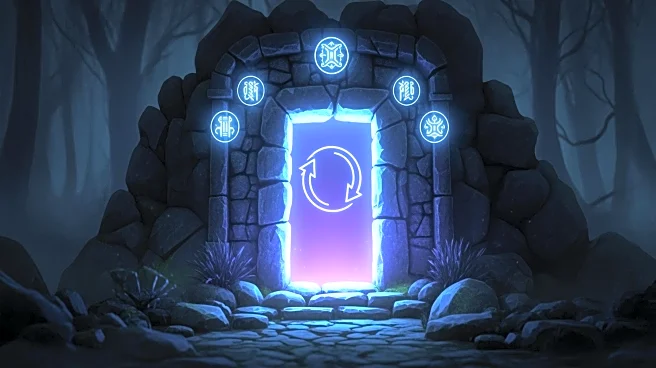What's Happening?
Polish Deputy Prime Minister and Foreign Minister Radosław Sikorski has accused Russia's military intelligence, GRU, of orchestrating a sabotage attack on a train track near Warsaw. The incident, detected
on November 17, involved two Ukrainian citizens allegedly recruited by Russian intelligence. Polish Prime Minister Donald Tusk announced that the suspects have fled to Belarus. Sikorski described the act as state terrorism and promised a response beyond diplomacy. The blast did not cause casualties, but it has prompted Poland to deploy military forces to investigate and secure other rail segments.
Why It's Important?
This accusation against Russia's GRU highlights the ongoing hybrid warfare tactics employed by Russia against Poland, a key ally of Ukraine. The incident underscores the vulnerability of critical infrastructure in Poland and the broader region, raising concerns about the security of supply lines supporting Ukraine. Poland's strong stance against Russia may influence other European nations to adopt similar measures, potentially leading to increased diplomatic and military tensions. The situation reflects the broader geopolitical struggle between Russia and NATO countries, with Poland playing a pivotal role in supporting Ukraine.
What's Next?
Poland is likely to enhance its security measures, including increased military presence and surveillance of critical infrastructure. Diplomatic efforts may intensify as Poland seeks support from NATO allies to counter Russian aggression. The incident may lead to further sanctions against Russia, impacting economic relations. Poland's response could set a precedent for other countries facing similar threats, potentially leading to a coordinated international effort to address hybrid warfare tactics. The situation may also prompt discussions within NATO on strengthening collective defense strategies.










